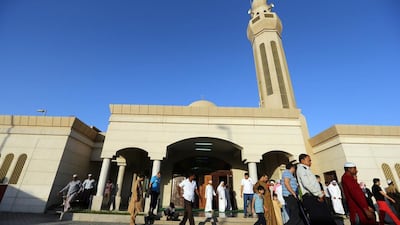With the growing number of Muslims around the world, many magnificent and sumptuous mosques are being built. It is fascinating to see this, not only because Islam loves beauty but because the main goal of a mosque is to make people feel comfortable and serene.
Unfortunately, the construction of these mosques pays little attention, if any, to accessibility – that is infrastructure convenience for the disabled. In fact, the opposite is happening.
As someone with a disability, and a carer for a disabled person, I have long been bothered by the lack of facilities for the disabled in mosques. Many mosques have steep stairs with no ramp or even a handrail. The ablution area is often tiled and slippery, but with no handle or rail.
I have also noticed that deaf Muslims feel left out of the Friday sermon, lectures, classes or other gatherings due to a lack of sign language interpreters. Similarly, there are often no braille Qurans for vision-impaired worshippers.
These conditions make it difficult for the disabled, even though according to Islamic teaching the mosque should be a place for everyone regardless of colour, social status or physical condition.
It is clear that communities around the world need to change their perspective by building mosques that are accessible for everyone. I am sure that it would not take a tremendous feat of architectural ingenuity or a significant amount of cash to solve the issue when designing mosques. Similarly, it would not be a Herculean task to modify existing mosques.
A simple lift at the entrance of the mosque or a handrail in the ablution area, could make all the difference between a mosque that is inclusive and caters for all, and one that excludes some of its worshippers by virtue of careless planning.
One beautiful element of Islam is the system of equality it champions. Islam is a religion in which people are judged by God by their deeds alone. No matter if they are rich or poor, black or white, man or woman, disabled or normal, all are equal in the eyes of the Almighty. In fact, in his final sermon, the Prophet Mohammed said no person had superiority over another except by piety and good action.
My message does not apply to all mosques. But my travels to more than 20 countries have made me believe that this is a widespread problem around the world. And my immersion in the disabled community has further strengthened my belief that this is a problem that needs everyone’s involvement if we are to find solutions.
If mosques are made accessible, it is not only the disabled who will enjoy the facilities, but also the elderly and the sick. As the Prophet said, “you are given sustenance and victory for the virtue of those who are weak among you”.
This means that our well-being depends on how we take care of those who are weak among us, including those with special needs.
Muhammad Zulfikar Rakhmat is a researcher at the school of sciences at the University of Manchester

